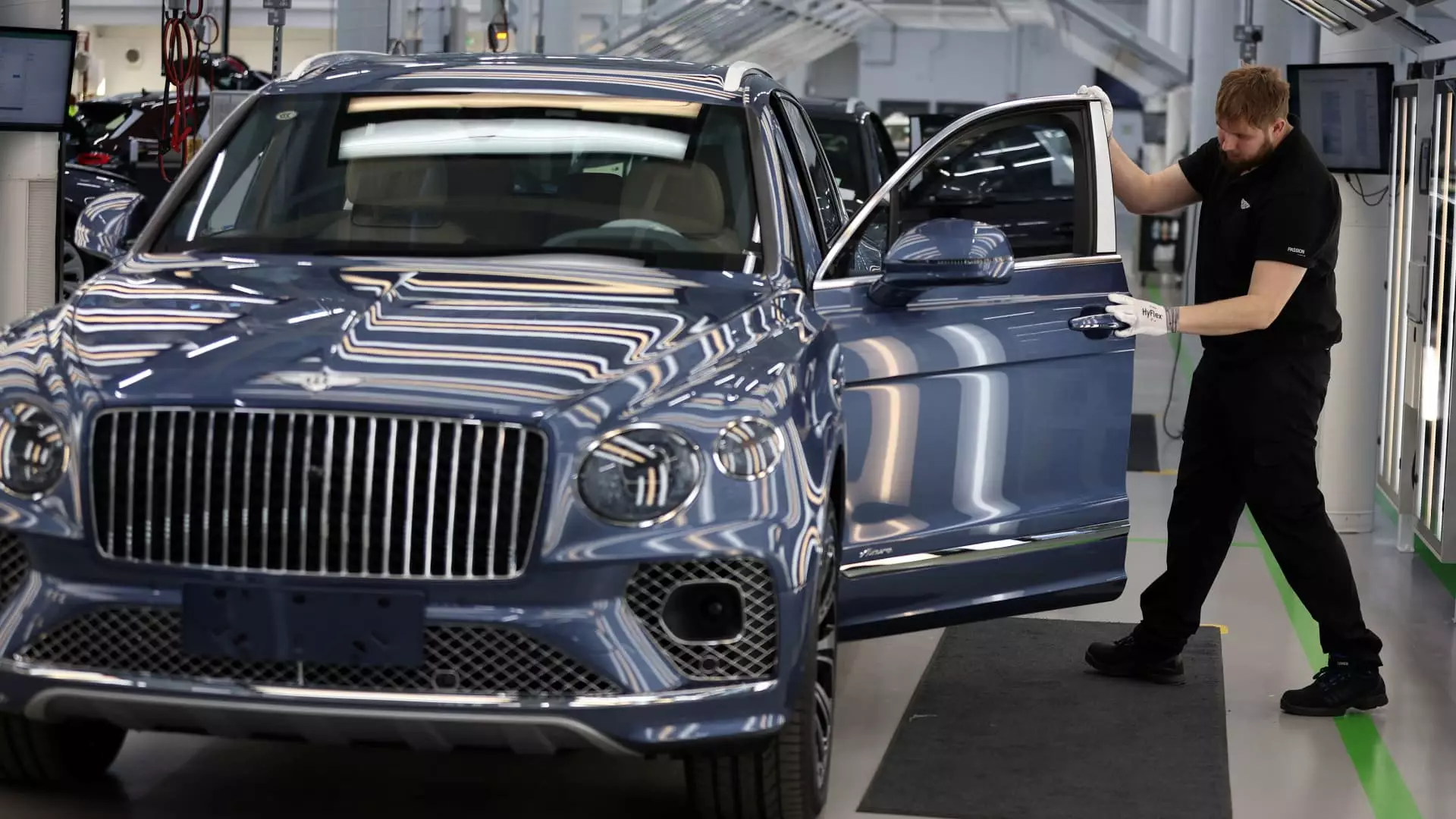In an era of unprecedented shifts towards sustainability and electrification, Bentley Motors stands at a crossroads. The prestigious British automaker has recently announced adjustments to its timeline for offering all-electric vehicles, extending the reliance on plug-in hybrid electric vehicles (PHEVs) until at least 2035. This announcement underscores Bentley’s struggle to align its luxury brand identity with the fast-evolving automotive landscape and the pressing demands for electric mobility.
The intricacies of Bentley’s latest strategy reveal a deeper story about the luxury automotive market. Bentley’s Chairman and CEO, Frank-Steffen Walliser, made it clear that the current customer base exhibits limited enthusiasm for fully electric vehicles. This reluctance poses a question: how does a luxury automaker maintain its essence in a market that is rapidly transitioning to electric mobility? Walliser articulated a crucial point regarding the necessity to adapt not only to legislation but also to competition. The reality is stark; while laws push for electrification, the appetite for such offerings from high-end customers remains tepid.
This reality highlights a significant challenge for Bentley. Historically, the brand has been synonymous with power, elegance, and a performance-driven experience—often characterized by substantial internal combustion engine vehicles. The reluctance of current Bentley clientele to switch to electric alternatives hints at a potential misalignment between the brand’s luxurious image and the expectations of a new generation of customers. As Walliser indicates, the automaker is cognizant of the need to bridge this gap while remaining attuned to compliance with evolving regulations to enhance environmental sustainability.
Despite the delay in launching fully electric models, Bentley’s commitment to developing PHEVs remains steadfast. The plan to introduce a new electric or hybrid vehicle annually until 2035 is a strategic maneuver to retain existing customers while gradually attracting new ones. Matthias Rabe, leading the research and development efforts, emphasized that the company is willing to continue its PHEV offerings as long as market demand persists. This approach reflects a balanced strategy, acknowledging the transitional phase the automotive industry is currently navigating.
However, keeping the production of traditional internal combustion engine vehicles in the mix raises questions about the longevity of such models in a future increasingly dominated by electric powertrains. By re-evaluating its product portfolio, Bentley risks alienating an audience that expects cutting-edge luxury. Notably, the decision to develop a “Luxury Urban SUV” as its first fully electric model, now slated for 2026, underscores a more cautious approach towards embracing electrification.
Former CEO Adrian Hallmark’s departure brought to light the underlying technical challenges that Bentley faced, including software glitches and difficulties in creating a robust architectural framework for electric vehicles that aligns with the brand’s high standards. The recognition of these hurdles catalyzed the strategic shift from the initial goal set in 2020, indicating that the path to electrification is fraught with complexities. Walliser’s remark that “we adapt to today’s economic, market and legislative environment” exemplifies Bentley’s willingness to rethink its approach based on real-world conditions rather than merely chasing the latest trends.
The renaming of its long-term aspirations from “Beyond100” to “Beyond100+” signifies a commitment to continuous evolution while honoring over a century of heritage. It reflects the company’s need to balance tradition with innovation, a crucial endeavor for a brand whose identity is steeped in powerful engines and an illustrious history.
Bentley Motors’ recalibration of its electric vehicle ambitions highlights the complexities luxury car manufacturers face in a shifting landscape. While the pursuit of fully electric vehicles is inevitable, the company’s tentative steps underscore a recognition of current market realities and customer sentiment. The commitment to PHEVs, alongside upcoming electric offerings, epitomizes Bentley’s strategy of gradual transformation, positioning itself to adapt to both legislation and evolving consumer expectations.
The challenge lies ahead: to retain the essence of what makes Bentley unique while embracing the technological advancements that will define the future of the luxury auto industry. As Bentley navigates this era of change, it has the opportunity to redefine luxury in a manner that aligns with sustainability, ensuring its legacy as a pioneer in both heritage and innovation.


Leave a Reply